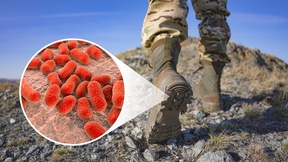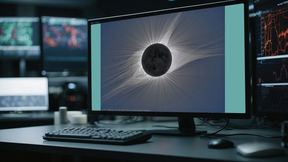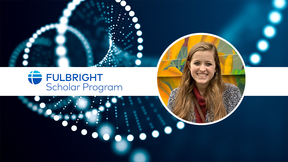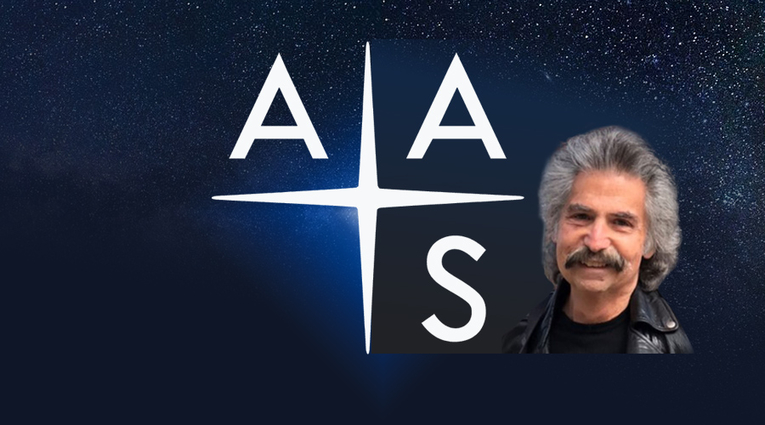LLNL scientist honored as 2022 American Astronomical Society fellow
LLNL physicist Richard Klein has been selected as a 2022 fellow of the American Astronomical Society.
Klein, who was selected “for broad and influential contributions to computational astrophysics, for scientific achievements on radiatively-driven stellar winds and star formation theory and for training a generation of students and postdoctoral scholars,” is one of 23 members honored as fellows for 2022.
“I am thrilled to get this award designation as a new fellow from the American Astronomical Society,” Klein said. “I am deeply grateful to the many extraordinary collaborators including senior researchers, my graduate students and postdocs who I have worked with over the last several years both at LLNL and UC Berkeley.”
Klein serves as a senior physicist in the Weapon Physics and Design (WPD) division within the Weapons and Complex Integration Directorate at LLNL. He developed and led the initial code Verification and Validation (V&V) effort in the WPD division for several years at LLNL and also leads the development of the Uncertainty Quantification (UQ) Pipeline within the WPD division to perform UQ analysis of the main codes in WPD
In addition to his position at LLNL, Klein also is a full adjunct professor in the Astronomy Department at UC Berkeley. He teaches advanced graduate courses and conducts astrophysical research with graduate students and postdocs who are in the Berkeley Astrophysical Fluid Dynamics group that he jointly co-founded with his colleague Christopher McKee at UC Berkeley.
At LLNL, Klein studies applications of UQ analysis to bring these methods into practical applications to the complex multi-physics codes and evaluates the uncertainty in code simulations.
In astrophysics, Klein looks into understanding the role of coupled magneto-radiation-gas dynamical flows in a wide range of astrophysical phenomena using extreme high-resolution simulations with Adaptive Mesh Refinement (AMR). He and his research group have developed new approaches to adaptive mesh refinement including radiation magneto-hydrodynamics.
In the area of star formation, he developed and applied state-of-the-art parallel adaptive mesh-refinement (AMR) magneto-radiation-hydrodynamics to study the gravitational collapse and fragmentation of turbulent molecular clouds in the galaxy, leading to the formation of molecular cores and stars and to the formation of massive stellar clusters in the current and early universe. Klein also studies the formation mechanisms of both low mass stars and the formation of massive stars including feedback mechanisms such as radiation and protostellar winds. In the area of the dynamics of the interstellar medium, his investigations include various aspects of triggering star formation by ionization-shock fronts in molecular clouds, the interactions of supernova shock waves with clouds in the interstellar medium, and cloud-cloud hydrodynamic collisions.
Future endeavors include developing a complete theory of the formation of super star massive clusters in the present and early universe. The massive stars in super star massive clusters are responsible for the chemical evolution of the galaxies throughout the universe. He also plans to continue the study of new advanced approaches in UQ to apply to and better determine the uncertainty in the complex code simulations at LLNL.
Klein is a fellow of the American Physical Society.
AAS is a major international organization of professional astronomers, astronomy educators and amateur astronomers. The 2022 AAS fellows now represent the third class recognized for enhancing and sharing humanity’s scientific understanding of the universe through personal achievement and extraordinary service to the astronomical sciences and to the AAS.
“This year’s AAS fellow selections add to the growing list of distinguished members of our society,” said AAS President Paula Szkody of the University of Washington. “We’re delighted to recognize both the outstanding scientific accomplishments and the service to our community represented by the 2022 fellows.”
For more information, see the AAS press release, the AAS fellows page, the AAS fellows FAQ page and the inaugural fellows class press release.
Contact
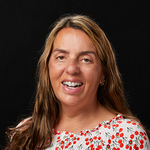 Anne M. Stark
Anne M. Stark
[email protected]
(925) 422-9799
Related Links
American Astronomical SocietyTags
PhysicsPhysical and Life Sciences
Science
Careers
Featured Articles
